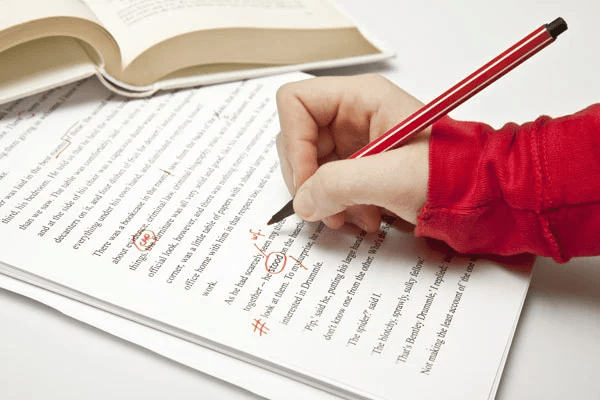9 Reasons You Need Professional Book Editing Services

Whether you are a non-fiction writer, casual writer, or creative writer, you need to know what editing your manuscript requires. It could be developmental or line editing comprising fixing grammatical and punctuation errors, fixing typos, and refining word choice. Moreover, the document also involves restructuring and setting formatting issues. An author can do self-editing of the book.
However, having a professional editor’s expertise can benefit the author in knowing the structural flaws in their draft. They proficiently proofread your work and let you know what type of editing the book needs. An incomplete manuscript having syntactic issues requires developmental editing. If your initial draft is ready, the story and the plot have been crafted; you need a copy editor who refines the language and syntax. High-quality and well-structured books have high market value and stand out as unique.
A well-organized and eye-catching narrative attracts publishers and editors in a competitive market. The magnificent and impressive story, tempting theme, and book cover designs entice more customers. Immersive content instantly prompts customers to buy the book. Therefore, the role of an editor is immensely important and a core part of the writing and publishing process. They develop a fascinating narrative using high vocabulary, artistic expression, and imagery that captivates the readers till the last page of the manuscript.
Why A manuscript Requires Professional Editing and Proofreading Services
1. Shape the narrative
In the early stage of the writing process, authors have a random idea for a book. They sketch out a rough outline that lacks coherence and transition among the paragraphs. The author desires professional editing assistance to bring the pieces together at this stage. Consequently, the editors analyzing the first draft prepare an editorial assessment report.
It offers professional and insightful feedback regarding the strengths and weaknesses in the story’s plot, characters, or structure. The editorial assessment does not provide editorial comments. Instead, the author receives a letter focusing on using more creative ideas and refining the language. Moreover, the editing report also emphasizes an author to improve the narrative’s tone.
2. Reduce inconsistency in the story
To keep up the momentum in writing, the authors are encouraged to conceive an interesting plot for the novel. A plot progresses chronologically from an inciting incident, rising action to a climax. They create different characters to build up the story along with the plot.The initial draft provides a structure to the story. Therefore, the writers should spend more time writing instead of revising the draft to refine the language. Consequently, the draft needs in-depth editing, known as developmental editing. It is also called content substantive editing.
Book writing company hired to review the initial draft provide comprehensive feedback on the plot’s critical issues. They help remove irregularity in paragraphs by eliminating irrelevant details. Also, they allow writers to know how to organize their thoughts, structure the plot, and transition between ideas to keep pictures coherent. They suggest writers add missing elements in the story that help to shape the narrative. Hence, development editing focuses on improving the plot, characters, and the story as a whole.
3. Improve the tone and voice of your manuscript
The developmental editor looks at big-picture issues in the book. A content editor also plays an eminent part. They engage in the editing of chapters, sections, and subsections. Also, they deeply review and point out incomplete areas of the book. They move content to different parts of the book to give a complete shape to the chapters, sections, and subsections. A developmental editor helps build the book’s structure and fix the chapters. The content editor help to arrange the sections and paragraphs within the text.
4. Refining and decorating words and sentences
Line editor focuses on enriching the language and syntax of the chapters. The editor makes line-by-line editing. Up to this stage, the editors get to engage with macro-level editing. It signifies looking into each chapter and paragraph. They analyze sentence structure and point out run-on sentences and sentence fragments.
Moreover, they remove jargon and ensure that each sentence conveys clarity of ideas. Consequently, they help writers to focus on using appropriate word choices. For instance, many writers use extra words to express an idea that seems monotonous and breaks paragraphs’ flow. To build the book flow, the authors must write short, simple, concise words. Hence, the editor helps readers to maintain the organization of words and sentences.
5. Provide error-free document
While creating the first draft, the copy editors help authors to fill in the gaps regarding grammar and punctuation errors. They review the manuscript and come up with spelling, punctuation, and grammar flaws. They trim redundant words to make the prose more meaningful. The editors also create engaging headlines, titles, and subtitles and write eye-catching photo captions for the book.
6. A perfect content ready for publication
At this stage, Professional book proofreading services can review your book’s printed version after it has been designed and formatted. The proofreader takes a final review before the book goes to print. The authors must get their document proofread once the editorial team formats it. The final editing by a proofreader comprises checking the typos and misplaced punctuation. They also look out for layout issues like page numbering, consistency with headings, placement of tables or misplaced figures in the text, and page breaks. Hence, the proofreaders fixed all the structural and grammar mistakes the copy editor missed while editing the first, second, and final drafts.
7. Save time and effort
Hiring a professional editor benefits an author as it saves their time and energy. Mostly self-published authors self-edit their time-consuming work. They read the manuscript and corrected spelling and grammatical errors. The author may not spot some punctuation errors. Therefore, they require professional editors who use editing tools to edit a book comprehensively. Moreover, they edit the book skillfully and at a quick pace. Hence, they use high-quality vocabulary and choice of words that create a sound and sophisticated manuscript.
8. More chances of publication
For academic achievement, students need professional editing and proofreading assistance. The editors refine their work and increase the chances of it getting published in a professional journal or site. An editor review references and citations according to the journal’s guidelines. Accurate proofreading verifies that professional editors and proofreaders have edited and proofread the manuscript. It increases the credibility of the published book.
9. Professional editing ensures professionalism
Even corporate businesses hire professional editors and proofreaders who proficiently edit their business reports and presentations, research projects, brochures, booklets, and posters. The editors also improve the language of business documents and letters. People also hire editors who can refine the vocabulary of job applications, cover letters, and CVs.
To Recapitulate
Choosing a professional editing service will benefit the authors by enriching the quality of their writing. They provide valuable feedback and suggestions regarding improving grammatical errors, and syntax, creating coherence and transition in the text. While editing, some sentences or paragraphs are removed that have irrelevant details. Once structural issues are solved, the editors revise the document to check transitions and the flow between sections that make the draft readable and appealing to the readers. Consequently, a well-edited and organized manuscript will gain market value on various online platforms.






